Forbidden City Mystery: Cracked Brick Courtyard, Accidentally Revealin.g a Shocking Secret?
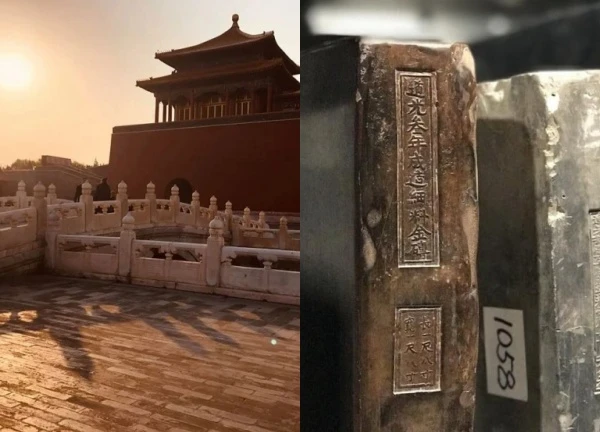
2 | 0 Discuss | Share
In the heart of a bustling Asian city, there exists a strange market that only operates at night and completely disappears when the sun rises. Here, some people earn hundreds of millions each month, but others pay a heavy price for breaking the law.
This type of market is called "tianguangkhu" by the Chinese, which roughly translates to "a market that disappears before the sun". There is usually no fixed location, no signboard, no bright neon lights like tourist night markets. Instead, there are flashlights, motorbike lights, hastily set-up tables, and purchases made in silence, coming and going quickly.
What makes these markets so special—and somewhat terrifying—is the way they operate. Prices are never listed. Vendors almost never bargain, and buyers must know the “rules†before they dare enter. Those who are unfamiliar with the rules, or ask too many questions, often get cold looks—or worse, are refused a transaction. This is not just a place to trade, but almost a world of its own—closed, implicit, and mysterious.
The goods in the "ghost market" are extremely diverse, from antiques, collectibles, old equipment, even items of "unknown origin" that insiders implicitly understand as lost items, liquidated from clearance projects, or even... dug up. Because of this ambiguity, experienced traders can make huge profits - some earn up to 300 million VND per month, but there are also many risks, especially when dealing with banned goods or ownership disputes.
In that underground world, mone.y moves without receipts, and the identities of buyers and sellers are unclear. The only thing that exists is silence - and the unwritten rules: don't ask too many questions, don't show up too late, and be reasonable if you want to come back next time.
Entering a “ghost market†is not like walking around a normal night market. This is an underground space, where there are unwritten rules that anyone who wants to trade must follow. The atmosphere here is not noisy and bustling, but on the contrary, quite quiet, even somewhat tense.
First of all, one of the biggest no-nos is taking photos. Whether you’re just trying to capture the unique atmosphere or the quirky look of the stalls, holding up your phone can make the stall owner uncomfortable or even angry. Many vendors don’t want to be identified or publicly disclose what they’re selling, given the ambiguous, semi-legal nature of some of the items here.
In addition, when buying and selling, you can absolutely bargain. However, you should never ask questions like: "Is this real?", "Where did you get it?", or "Do you have any documents to prove it?". Such questions are often considered tactless, even offensive. In this secret world, everything operates based on relative trust, the eye of the buyer, and a little luck.
If you are not confident in the value of the item, it is best to walk away quietly. Excessive suspicion or questioning can easily annoy the seller and implicitly exclude the buyer from further transactions. In addition, an important unspoken rule is not to use force under any circumstances. Even if there is a dispute over price or ownership, all parties understand that this is an "informal" area, so violenc.e is absolutely taboo - both to maintain order in this small community and to avoid unwanted attention from the authorities.
Before visiting a ghost market, careful preparation is essential, especially if you are new to it. Without bright street lights or signs, most of these markets take place in dark, sometimes damp or dusty spaces. A handheld flashlight is a must-have, helping people observe their way and see every little detail on the items - from the cracks on a ceramic vase to the faint signature on an old painting.
A magnifying glass is also a useful tool, especially if you’re looking at small antiques like watches, coins, or stamps. For many antique collectors, a close look can tell the difference between a genuine item worth tens of thousands of dollars and a well-made replica.
Finally, visitors will need a sturdy backpack or canvas bag to carry their purchases. Most stalls here do not have bags or packaging, and shoppers will not want to carry their purchases in a dark, cramped area. Coming to the ghost market is entering a different world - a place where things operate according to their own rules, where people hunt for memories, opportunities, and sometimes unsolved mysteries.
One special - even strange - thing about these "ghost markets" is that all goods are not listed with prices. There are no price lists, no general regulations, all transactions are based on bargaining, feelings and... experience. Therefore, the situation of "price gouging" is not rare. Many stall owners are willing to raise the price many times higher, especially if they realize that the buyer is a stranger or does not understand the item. For newbies, if they do not know how to negotiate, it is easy to fall into the situation of "losing mone.y, not getting the right product".
However, this is also where the buyer's cleverness and bravery are demonstrated. Bargaining is almost a mandatory "ritual", and if you are patient enough and have a little knowledge, you can absolutely buy a good item at a very "soft" price. On the contrary, a hasty nod can make the buyer pay double, even triple the real value.
Despite being small and temporary, the income of the stall owners here is not small. With clever pricing and the ability to grasp customer psychology, many people can earn up to 80,000 NDT per month - equivalent to about 280 million VND. This number surprises many people, especially when imagining a market without signs, without contracts, only open at night.
However, trading in the "ghost market" is not necessarily a path of roses. Stall owners often face the risk of damaged or broken goods, especially during the rush to clear the goods before dawn. Because it is an informal activity, not legalized by documents or insurance, when losses occur, all damages are borne by the seller. An antique broken in just a few seconds can mea.n losing a week's profit.
In a place where buying and selling is decided by eyes, experience and tacit understanding, the "ghost market" is not only a shopping destination, but also a "game" full of luck - where the clever will wi.n bi.g, and the unwary will easily become prey in the dark.

2 | 0 Discuss | Share

3 | 0 Discuss | Share
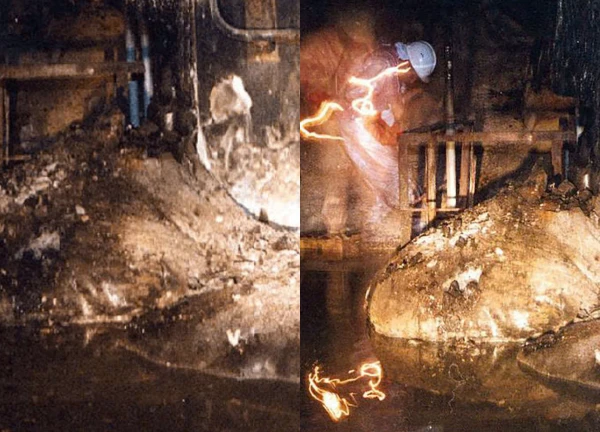
2 | 0 Discuss | Share

2 | 0 Discuss | Share

2 | 0 Discuss | Share

4 | 0 Discuss | Share

4 | 0 Discuss | Share
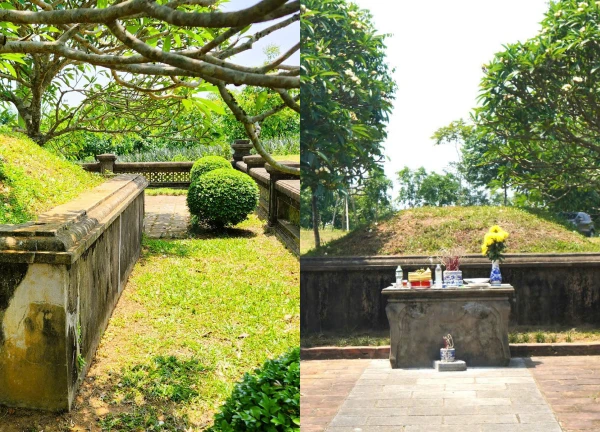
2 | 0 Discuss | Share
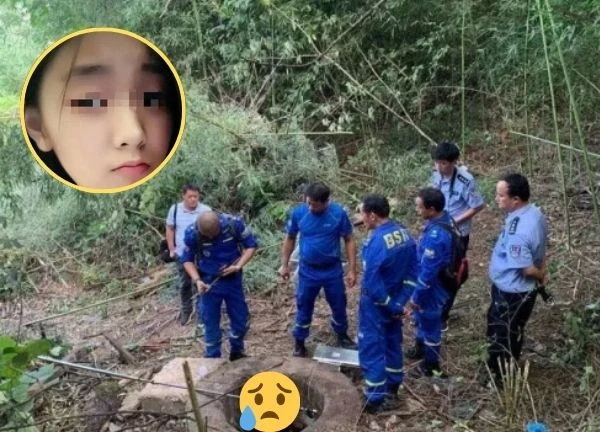
5 | 0 Discuss | Share
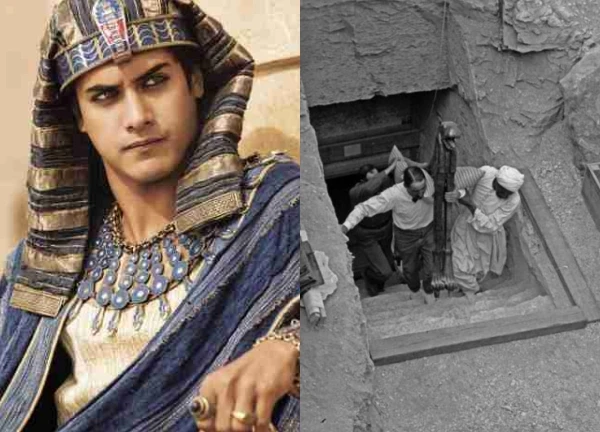
1 | 0 Discuss | Share

2 | 0 Discuss | Share
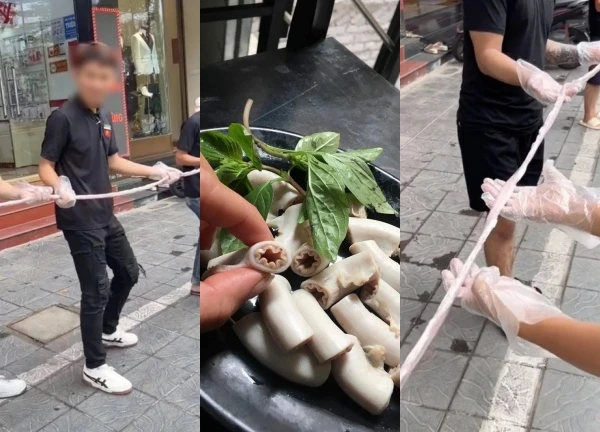
3 | 0 Discuss | Share
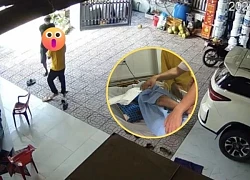

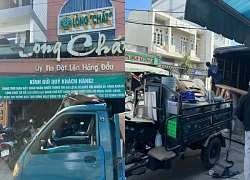
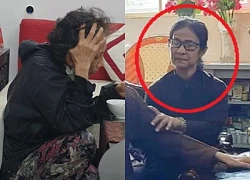



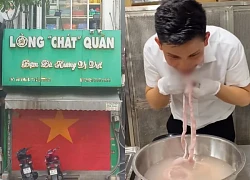


4 | 0 Discuss | Report